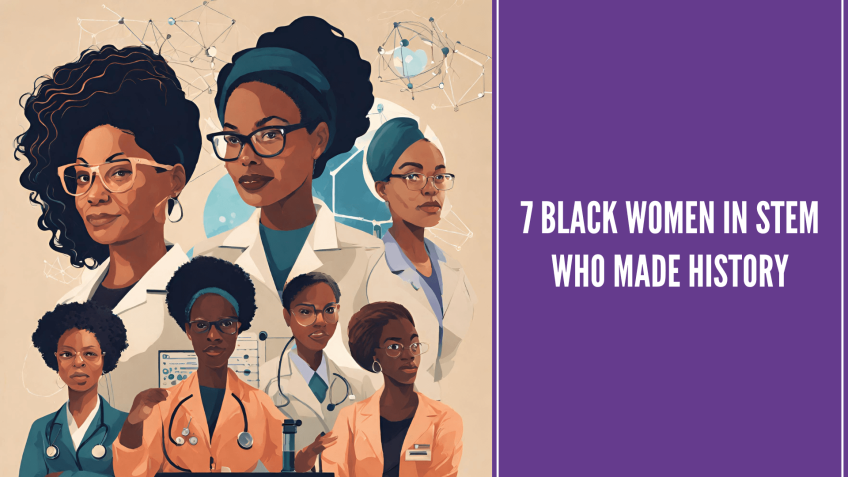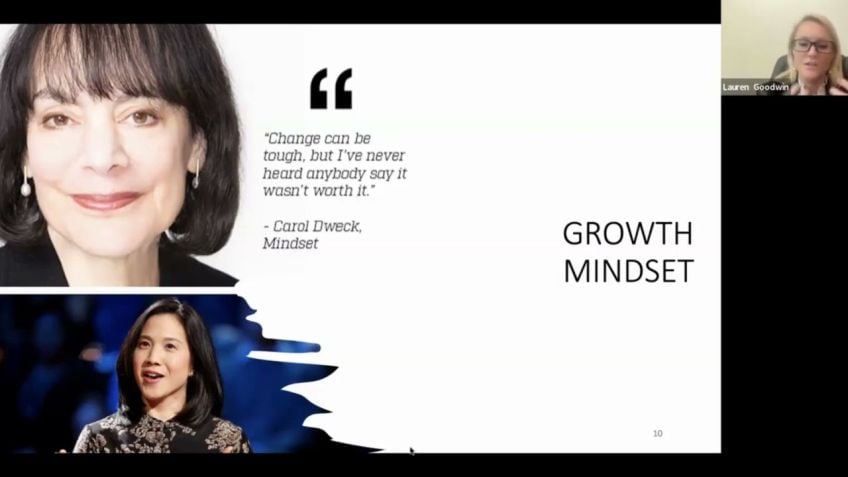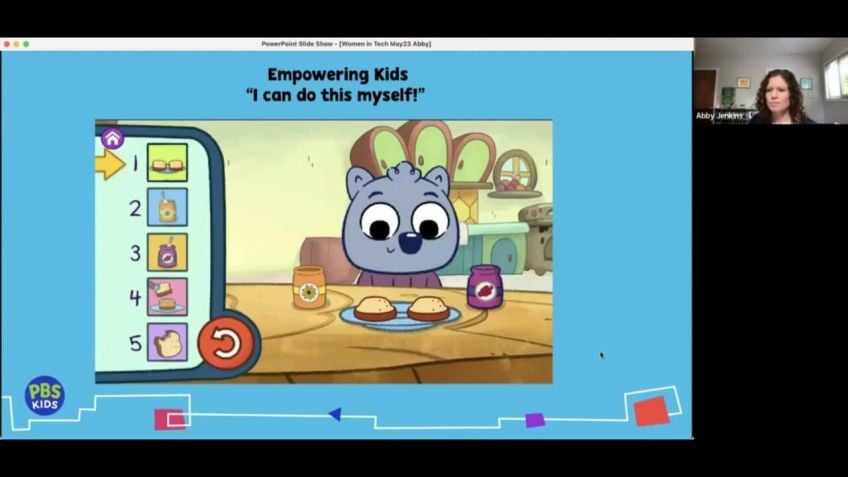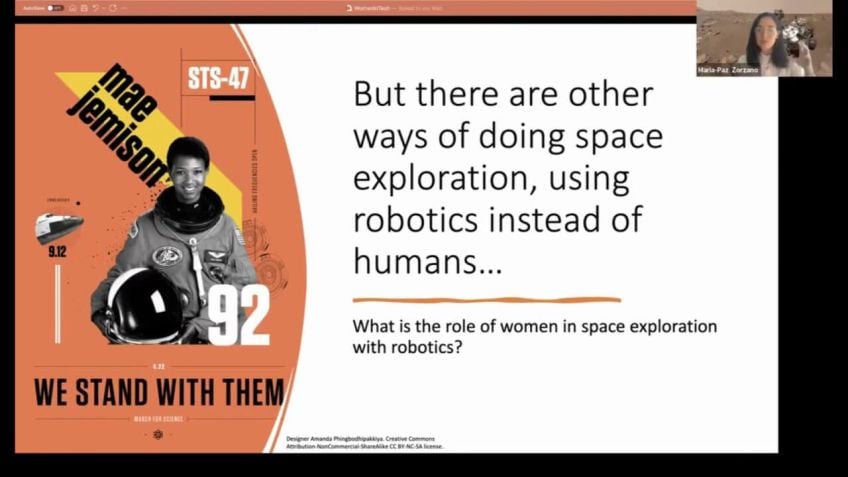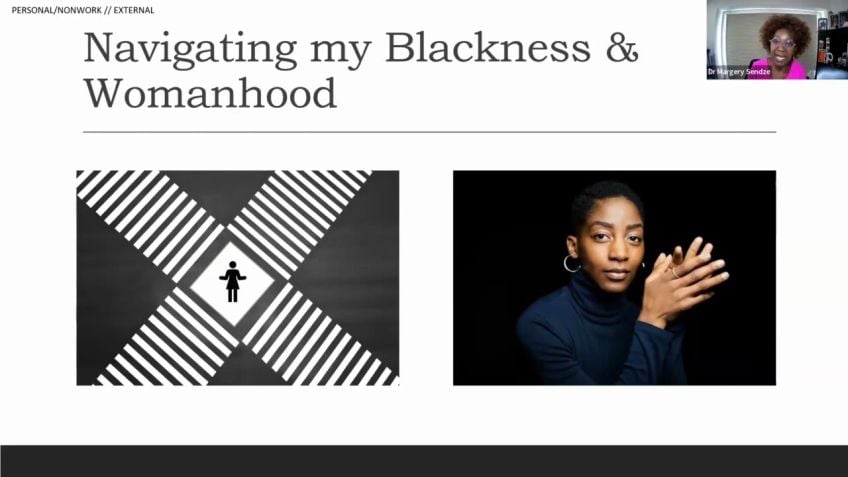Jennifer Flanagan Inspiring the next generation of women as STEM Leaders
Advancing Girls and Young Women in STEM: A Global Pursuit
Today, we have the opportunity to explore one of the most important topics in the global workforce - gender diversity in the STEM industry. Jennifer Flanagan, CEO of Actua, shares her insights.
Actua's mandate is to promote confidence and skills in science, technology, engineering, and math among the youth in Canada.
The Need for Diversity in STEM
Despite global advancement, the disparity between males and females in STEM continues to be an issue. Canada, proud of its multicultural diversity, is not exempt from this challenge.
The Disparity in Numbers
The STEM industry contributes significantly to Canada's economic prosperity. As a cornerstone of innovation, the contribution of the STEM industry has been underscored by the COVID-19 pandemic. However, gender equity and broader diversity in this field have lagged behind. For instance, Canadian women are less likely to pursue high-paying STEM fields like engineering and computer science. It is a disturbing fact that 50% of women in tech roles leave their jobs by the age of 35. Similarly, colleges and universities record low enrollment rates of women in STEM courses.
The Difference Early Intervention Makes
Actua's initiative to engage girls early in STEM shows promising results:
- Over 50% of boys have an extreme interest in careers involving coding, while only 27% of girls express a similar interest.
- Almost twice as many boys than girls express confidence in these areas.
- Boys have had twice as many opportunities to learn these skills outside of school as girls.
Clearly, there is a prominent gap that needs to be addressed urgently.
Biases Can Be Broken: Inspiring the Next Generation of Women STEM Leaders
Let’s delve into how we can inspire future female leaders in the STEM industry, noting that diversity boosts innovative solutions.
Cultivating Interest, Confidence, and Opportunities
Engaging girls early in STEM education builds critical skills and confidence. With supportive environments for exploration and learning, we can make real progress.
Role Models and Mentors
The impact of role models and mentors on girls' aspirations in STEM cannot be overstated. By presenting a diverse set of individuals who have succeeded in STEM, we encourage girls to envision themselves in these roles.
Achieving Systemic Change
The call for diversity starts from the top. Advocating for policy changes that promote diversity and inclusion will lead to reforms in the STEM industry.
Actua in Action: Promoting Involvement in STEM among Girls
Actua has successfully launched a National Girls Program in Canada. This initiative exposes girls to STEM outside of their school environment, boosting their confidence and interest. Similarly, other initiatives focus on online safety, especially for girls, and promote careers in cybersecurity.
Continuing the Discussion for Diversity
In conclusion, addressing gender disparity in the STEM industry is a global agenda. Though the challenge is significant, targeted interventions, supportive environments, and systemic changes can move us towards a more inclusive future.
Please feel free to reach out or visit Actua's website at 'actua.ca' for more information on this critical topic. Or follow Jennifer Flanagan on Twitter @ActuaCEO to engage in this ongoing discussion.
The journey to gender equity in STEM might be long, but together, we can make a positive difference. Let’s continue the discussion and keep pushing for reform.
Video Transcription
Uh my name is Jennifer Flanagan.And um I am going to spend the next 20 minutes with you talking about girls and young women in uh in STEM and uh because it's a smaller group, uh there's uh that gives us the opportunity to have more dialogue and more discussion. So I do encourage you to um write comments in the chat or ask questions in the chat. There is a question, period at the end, I was gonna leave some time for questions, but because of the size of the group, I'm super happy to be responsive to the chat. Uh So if there's anything that you wanna share about your experience or um questions that you have, please do that and I will uh keep an eye to uh to that as well. So let's um let's get, let's get started and uh again, thanks for taking the time to um to spend uh talking about this topic, which is such a critical topic uh globally. I certainly know in, in all of the countries that you're representing.
This is um this is continues to be an issue and certainly I am coming at this from a uh perspective uh in Canada. And that is where I'm going to ground a lot of this uh content. But again, um very applicable in a global global context. So just to give you a snapshot first of actu, so that's the organization that I am the CEO of and um in, in um in Canada, we, of course, province and territories, 13 provinces and territories across the country, act as a national organization. So we deliver a across all of those 13 provinces and territories. And our mandate is to promote confidence and skills in uh science, technology, engineering and math. So, so we do that for youth, right? From kindergarten. So here that's five year olds um right through to 26 year olds uh who are the people that we actually employ to deliver our programs. So to give you a sense of our model and of course, I'm gonna be talking about this topic and then I'm gonna come back and talk about what actu does um to encourage more girls in stem. Uh But uh it's, it's helpful for you to, to have a little context. So um and happy to see other people joining uh Navina from Slovenia in Europe. That's fantastic. Welcome. Uh And uh people coming at this topic from lots of different um angles.
So as professionals in this field important for us to, to know about this and to care deeply about this as parents, as you know, people who have young women in our, our lives, but also potentially as as young women ourselves who are still facing barriers and needing to be aware of uh some of the challenges that exist to, to pursuing higher levels within the stem field.
So, um in Canada, we are a very multi multicultural um country and uh that said, uh we are struggling right now as a country with some really horrible events of late um that involve very deep seeded racism. And um those are involving both our, our Muslim community and our indigenous communities. Um So this country is in a moment of deep reflection and struggle. It's customary. Um Certainly for AUA to always recognize when we do presentations the indigenous lands that we're speaking from.
So today, I'm in Ottawa, which is the capital of the country. It's also unseeded Algonquin territory. So recognizing the Algonquin people whose land um we are presenting from uh this topic is incredibly relevant to what's happening in Canada and in fact, what's happening around the world.
Um And that is the efforts to promote diversity and inclusion and equity. Uh We're talking about it in STEM, but it certainly has um really important connections to, to this topic uh on a whole. So to get into the stem piece. Oops, sorry. I uh thank you. So to get into um to the stem piece specifically. Um Of course, you know, stem jobs as, as they are in all the countries that you represent are incredibly important to the economic prosperity of the country. Uh stem uh the stem industry is a cornerstone of uh innovation in Canada, certainly. And uh we have a lot of fast growing uh fast growing sort of hubs of technology development. So places like Montreal and Waterloo who are, you know, quickly climbing to the top of fastest growing um tech hubs in North America. Uh Montreal becoming a, you know, a World Center for Artificial Intelligence, for example. Um and you know, technology has, needless to say, has become not only an imperative in our economy but also in all of our lives as we've moved through the pandemic and you know, really been forced to, to do everything we normally do um online. The other thing that is happening, of course is the recognition of the importance of stem skyrocketing due to the pandemic.
And um the recognition that fighting the pandemic and dealing with the pandemic has, has really been on the shoulders of a lot of scientists and health care professionals and, you know, technology folks who have been working on innovations to guide us and to advance us through the through the pandemic.
So um all that to say that, you know, the growth of, of these sectors is significant. This is in Canada, for example, and you can see that um between February and TW and in October of 2020 you can see that that uptick in in stem uh occupations in Canada. So an 8.7 almost a 9% increase in STEM jobs and that represents roughly 100,000 new jobs created in that time period. Well above uh well above the norm. So all that to say that technology continues to play a significant role in the country and in future employment opportunities.
Uh But with that comes the, the, the need to recognize this ongoing gap which is in uh gender equity, I mean, diversity broadly. Uh And I'll, I'll actually talk about that because actual works across the board in terms of not only encouraging um girls and young women and people who identify with those groups, but also we work extensively with indigenous youth and with other racialized um youth, including youth who are facing other socio economic challenges.
So, um the uh the work to recognize that there's a massive gap even though these fields are growing, even though there's more jobs, um we're still really struggling with representation in those areas. Um And, you know, in Canada, at least people that are in these jobs continue to look more like this slide, right? So we have a very dramatically um tipped uh science and tech field uh in the favor of mostly um mostly men. And we continued and to, to see and experience those kind of iconic technology folks as male, the people like Bill Gates and Zuckerberg and Elon Musk, all of whom, you know, do not, certainly do not reflect um the kind of diversity that we know we need to see in these fields in the future.
Uh So, um you know, gender inequality and technology and in stem more broadly is just still very much a reality, even though a lot of people would like to think that, you know, we've been working on this forever and, and, and we've made a lot of strides, but there's still, you know, massive massive challenges and I'm gonna talk about a couple of those.
So in Canada, um Canadian women are far less likely to pursue higher paying stem fields such as engineering and computer science. So that is uh still reigns true across the board. Uh There are certainly fields in science and in some uh specialties within engineering where we've made significant gains but continue to, to be um underrepresented. And these again are the highest paid and most plentiful jobs of the future. So this has broad economic and social impacts.
Uh This is another important one and we'll maybe speak to some people on the call. 50% of women in tech roles leave by the age of 35. And um that is to me astounding still to see those numbers and to know that, you know, a lot of that is due to the kind of culture and the support systems that lack in the tech sector for women who in Canada still um do maintain um the majority of the responsibilities in the home and with Children as well.
Um And this is reflected in colleges and universities in terms of uh enrollment rates. In first year, we do have some really bright success stories. So for example, U of T engineering um is coming close to hitting 50% of undergraduate students in engineering being female. So first year I think they're in the low forties, which is um you know, they're leading the country. There's a few other institutions that are approaching that. So that's been years and years of hard work on, on their part. But again, across the country, the average is still quite low. Um This is where I wanna just tell you about kind of anchored back to uh girls and women in stem and what this, what what young people in Canada anyway are thinking about. So last year, the year before last actu went out across the country and talked to young people in Canada and we asked them about their attitudes and their confidence about uh technology, about digital skills, about coding. And we were really interested to know, you know, do they recognize that these are really critical, important skills? Um that was a really important first question. Do they see this as, as necessary for their future? And then the second, the the the subsequent questions were around how confident they were and whether or not they had enough opportunities to learn.
So the good news was across the board, student or kids, parents, uh boys, girls, they all recognized that technology skills are really important to their future. Um And would be important in whatever career they chose to pursue. And that's where the kind of good news ended with this.
Um And as you can see with some of these stats, so, uh over 50% of the boys were very, were extremely interested in careers involving coding or programming. While only 27% of girls exp express that same um interest, boys express more confidence. So to the tune of almost double, so boys are almost twice as confident in these areas as girls. And then the third piece is around opportunities. So we asked them, do you ha have you had opportunities to learn these skills or um you know, or practice them or explore them uh um outside of school and twice as many boys had had those opportunities as girls. So boys are thinking about this more at this age. Um And uh they're twice as confident and they've had twice the number of opportunities. And that again, speaks to the broader issue of, you know, who's facilitating them to have these opportunities and, and why aren't girls getting the same level of, of, of opportunity? So we know and, and I, I'm sure I don't have to um tell you that, you know, the diversity and inclusion and equity is not just for equity's sake. It, it is all which is important. But it's also because it leads us to better results in these fields.
It leads us to better products, it leads us to better re research, we're more innovative. Um And it, it, it just has better bottom line results for companies that are more diverse. So gender equality is very linked to better economic um outcomes. So the OK, the more that we invest in this um uh the better it is for, for all of us. So how do we inspire the next generation of, of women as, as as stem leaders? So what we know is that, you know, progress kind of needs to hit a tipping point and we haven't hit that tipping point despite the fact that we've been working through this for a number of years, I think that during the pandemic, we have the opportunity to um there's a resurgence of interest in this area of recognition, you know, women have been disproportionately impacted and have left the field in, in vast numbers.
And you know, this is this is something that we need to take advantage of as a moment um in time. So a couple of things about how we do that. So how do we get more girls engaged? Um The way we approach this is is by engaging girls early and often we know that stem education and getting them involved in stem programming builds skills that are necessary for them to um be successful in these fields in the future. But also just to generally have the confidence um and the skills that they need to continue looking for these and taking these opportunities um on. So the the programs that exist, especially outside of schools, for girls to do this are really important mentors and role models which we all know and we've heard over and over and over again, but it remains to be very important. If girls don't see anyone that looks or sounds like them, then they are continue, they're gonna continue not to envision that as um as what they can be in the future. So that can, you know, changing how we're presenting and who we're presenting um in terms of who does stem or who does, you know, computer science continues to be very, very critical, creating safe spaces is uh of course, something that we work on as an organization that's working with youth, especially vulnerable youth, making sure that they have um a supportive environment where they can explore and create and make mistakes and learn um that has now shifted for us into online spaces.
Of course, kids are online more than they ever have been and there's a whole host of issues and I don't have time to get into those. But girls in Canada at least are experiencing a huge increase in online victimization and online things like trafficking and radicalization to violence, all kinds of very negative things are happening. So the importance of creating safe spaces online has also become very critical.
Um And then from a systemic change perspective, we know that this starts at the top and we need to continue to advocate for the kind of changes um from the border own to the C suite, to the way that policies are constructed by governments, all of those um being incredibly important.
So putting this all into practice, I wanna give you a sense of how actu uh does this work very quickly. So we have a National Girls Program, which is a series of all girl initiatives where we um give girls those opportunities outside of school to, to learn about and practice coding and computer science and other digital skills where they're able to then apply those skills to real life um problems they're exposed to mentors and role models.
Um And really, they have a chance to see that this in fact, is a, is a field that they can be really good at just to highlight two other initiatives before. Um I open things up for questions, but I mentioned the online space and I know this is an issue again across the globally that uh we need to pay attention to. And that is the environment that girls are experiencing when they go online. And how do we make that safe? And how do we make sure that all the good work we're doing to encourage them in these fields isn't negated. By an online negative experience. So we've actually developed content um for uh to help girls be safe online. So it does a couple of things, one, it, it um sort of safety proofs them online by giving them the skills uh to know how to keep themselves safe online and, and how to um be a good digital citizen, but it's also uh promoting careers in cyber security which we know, again, are plentiful around the globe.
Um And, and super important for us to increase the level of, of, uh, of women in those fields. So, um, that's one of the things that we're doing. Um, and, you know, with that, I, I'd love to just wrap up and see if there are any questions that anyone has. Um, and, um, I'm, I'm open to questions or comments um, on anything that I've, I've presented and can people talk or just in the chat, in the chat? So, yeah, please do, um, share anything that you might wanna share in, um, in the chat. Yes. Uh So someone asked if they can get a copy of the slides and I believe there's, there must be some mechanism for us to do that. We'll, we'll find out about that for sure. And then someone else? Oh, that's great. I'm so happy to hear that, that you're a mentor yourself. We don't, um, we don't work anywhere else outside of Canada currently. Uh It's such a huge uh area for us to uh to fill and there's a lot of kids. We're still not even reaching here. That said, I, we're super happy to share resources, our website actu dot C A. You can find um a whole bunch of this information, uh what we're doing, how we're engaging teachers and parents.
Um A lot of the thought leadership work that we're doing is is there as well. So I really encourage you to check out our website. You can also, I share a lot of that through uh Twitter. My Twitter handle is at AUA CEO. So at um I'm gonna put it here and then you can also follow at actual Canada. Um How do you find the mentors for them in Canada? And what age group is the program for? So are the age group for girls? We typically work with girls. I mean, again, right, from five year olds to 26 year olds, but we, we tend to work with girls in late elementary school in early middle school. So that would be girls aged 9 to 14 and we get the mentors um from a whole bunch of different places from universities and colleges, from our corporate partners. So actual has a lot of um companies that we work with that support our work and allow their employees to be role models and mentors. Um So that, that works really well. And of course, there's all kinds of vetting and training that happens with those um with those mentors and with that, I think I don't see any other questions. So uh oh, I, OK, I'll answer that quickly. Um So how have I started?
I just founded it's female and that's great. I'm so happy to see all these um these initiatives. Yes, please do. Um reach out and connect with me. The best way is through social media. So, again, at actual CEO and um we started, we started this initiative. Um it was very grassroots. So uh a groups of students really recognize the need to do this and the lack of opportunity for youth to learn about engineering and, and science at the time. So this is more than 25 years ago and um started an initiative that really has just grown over the past three decades. So I do encourage you to connect with us on social again, actu dot C A um is our website and uh you can reach us there to, to continue this conversation. So uh with that, I will wrap up our session and thank you again for uh attending.

